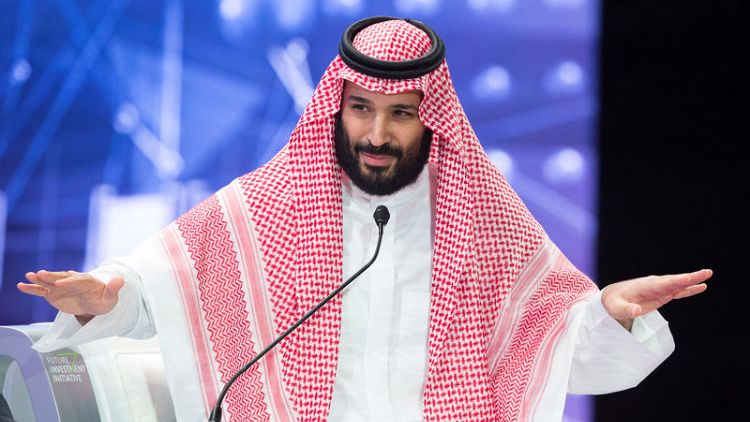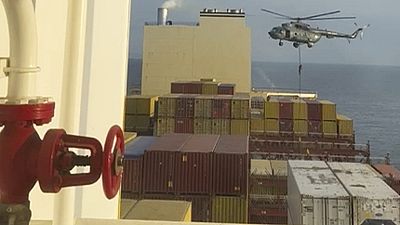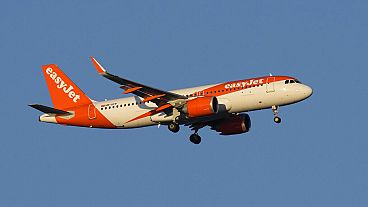By Andrew Torchia, Saeed Azhar and Tom Arnold
RIYADH/DUBAI (Reuters) - A year ago the Saudi sovereign investor Public Investment Fund (PIF) was a rising star among state-backed funds.
It poured billions of dollars into the SoftBank technology fund of Japanese tycoon Masayoshi Son and the infrastructure vehicle of U.S. private equity firm Blackstone, and was building a war chest for overseas deals.
PIF, chaired by Crown Prince Mohammed bin Salman, emerged as the most viable partner for foreign investors after an anti-corruption purge last year tainted many members of the Saudi business elite.
But the outcry over the killing of journalist Jamal Khashoggi in the Saudi consulate in Istanbul this month has made some Western firms reluctant to deal with PIF, threatening to slow some of its grandiose projects and global investments.
"Firms in sectors with a stronger CSR (corporate social responsibility) profile, including U.S.-based tech, will have a harder time accepting PIF money," said Steffen Hertog, a scholar on Saudi Arabia at the London School of Economics. "Larger and lumpier equity injections, potentially of the type giving the PIF a board seat, will be particularly difficult."
Some firms are already distancing themselves, but sums involved are relatively small compared with the $250 billion (£195.1 billion) PIF has invested.
British billionaire Richard Branson said earlier this month his Virgin Group would suspend its discussions with PIF over a planned $1 billion investment in the group's space ventures. A Virgin Group spokesman told Reuters his statement still stands.
Uber CEO Dara Khosrowshahi said on Tuesday the firm was awaiting the full facts on the murder before deciding whether this would affect the PIF's $3.5 billion investment in the ride-hailing service.
PIF officials did not respond to requests for comment.
TOO BIG TO IGNORE
PIF has shown no signs of changing its strategy. Managing Director Yasir al-Rumayyan told an investment forum this week that PIF holds almost 10 percent of its assets internationally and aims to raise that to 50 percent by 2030.
It has invested in 50 or 60 firms via SoftBank Group's Vision Fund and will bring most of those firms to the kingdom, he said.
Softbank walked a fine line at the Future Investment Initiative (FII) event in Riyadh which was boycotted by dozens of Western officials, bank chiefs and company executives.
Chief executive Son, whose $93 billion Vision Fund drew nearly half its money from Saudi Arabia, cancelled a speaking engagement but other Softbank executives joined panels.
Son came to Riyadh to meet high-ranking Saudi officials, including Prince Mohammed, to explain in person why he could not attend the forum and express concern over Khashoggi's death, one source familiar with the matter said.
Dozens of tech firms and private equity or investment companies interested in technology attended, including some U.S. firms. Privately, some said they expected outrage over Khashoggi to fade and business to return largely to normal in a few months.
Luca Verre, co-founder and chief executive of Prophesee, a young Paris-based company working on advanced machine vision systems, said he came to meet potential investors.
Verre said he understood the position of tech firms that opted to stay away and that Riyadh needed to do more to clarify responsibility for Khashoggi's killing. But he said PIF remained important for companies like his.
"You need investors like PIF that look for long-term game-changers. The commitment of PIF investments around strategic fields such as aerospace, security, IT, smart cities, autonomous vehicles etc is very relevant to what Prophesee is doing."
Electric car maker Lucid, which snagged a $1 billion PIF investment in September, had a stand at the venue as did Mastercard and Siemens. But none sent their top executives.
"Participation at the FII screws up perception in the U.S. and Europe. Withdrawal screws us up here (in Riyadh). The middle ground is lowering our profile," said an executive at another company, speaking on the condition the firm not be named.
DOMESTIC PROJECTS
Even before the political crisis, PIF's international ambitions were at risk of being sidetracked by a need to bankroll domestic projects under an economic reform drive.
The fund's three major projects - the NEOM mega city, a Red Sea tourism project, and the Qiddiya entertainment district - were announced last year, but financing plans remain a mystery.
Chief executives of all three said at the forum they were moving ahead, but did not reveal any investors or offer details on how they might be funded.
Saudi authorities have estimated NEOM will cost $500 billion, while estimates have not been released for Qiddiya or the Red Sea Project.
The projects lost their only foreign partner when Branson suspended his directorships over the Khashoggi case. NEOM's advisory board also lost members including Y Combinator's Sam Altman and former U.S. energy secretary Ernest Moniz.
International goals might be tested further if the kingdom faces prolonged pressure over the crisis which has strained its ties with Western allies, including the United States.
The PIF may look eastwards for investments depending on how the crisis plays out in the U.S. Congress, said a Gulf-based banker.
Rachel Ziemba, Adjunct Fellow at the Center for a New American Security, believed targets in Asia, Russia, the Mideast and North Africa would remain receptive to inward investment. "But I expect more scrutiny," she said.
(Additional reporting by Greg Roumeliotis in New York, Katie Paul in Riyadh and Hadeel Al Sayegh in Dubai; Writing by Saeed Azhar)



